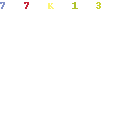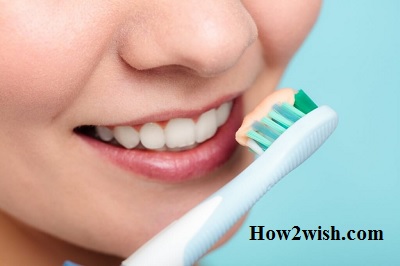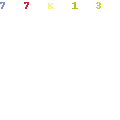Today we are exploring How Often Should You Brush Your Teeth? Cleaning the oral cavity is one of the most important hygiene procedures that must be performed daily. It is taught from childhood. However, as statistics show, parents do not always teach how to conduct it correctly. There are a huge number of nuances that are important to consider. Starting with the choice of a suitable paste, and ending with technology. The specialists of the dental clinic “Dentika” will tell you how many times a day you can brush your teeth, how to do it, and what will happen if you do the manipulation too often.

Why oral hygiene is required
The oral cavity is an ideal breeding ground for microorganisms. In this place all conditions for their development are created:
- Temperature regime is about 37 °;
- High humidity;
- Source of food (remains of consumed food and drinks);
- Lack of sunlight (ultraviolet destroys harmful bacteria).
Thanks to this, pathogens feel great and lead active lives. Of course, microbes can also be beneficial or opportunistic. But many of them are still pathogenic and cause various diseases. For example, stomatitis or caries.
Thanks to cleaning it are possible to remove most of them. Accordingly, to minimize their negative impact. If you neglect it, especially before going to bed, you will provoke an acid imbalance. Because of this, the production of saliva at night slows down, which leads to even more intensive reproduction and the spread of bacteria.
Drinks that we consume every day also harm tooth enamel. For example, tea or coffee. Because of them, the enamel surface turns yellowish.
To achieve a positive effect, it is important to carry out the procedure correctly. Otherwise, it may not only not give the desired result, but even be harmful.
Cleaning frequency
Many people ask themselves: “how often should you brush your teeth”. Some feel that the more they do it, the better. This means that they will be able to remove the maximum number of pathogens.
Such an opinion is erroneous. Specialists in the field of dentistry recommend hygiene twice a day:
- In the morning immediately after waking up;
- In the evening after eating and going to bed.
The exception is those who wear braces, dentures, and other orthodontic structures. They are at risk of developing dental disorders. That is why they should brush their teeth not 2 times a day, but they should do it as often as possible, after each meal. If doing this all the time is not possible, just rinse your mouth with mouthwash or plain water, or use chewing gum, or dental floss.
When not to clean and why
It is not recommended to do it immediately after eating foods with high acidity. For example, after lemon and other citrus fruits, freshly squeezed juices, and so on. It is necessary to wait at least 30 minutes so that the enamelled coating has time to recover from its aggressive impact.
The field of consumption of such food will still not be able to carry out high-quality hygiene. But this will lead to a high risk of microscopic damage to the surface. Such defects provoke the destruction of the coronal part.
It is also undesirable to clean if after it you are going to drink coffee or tea. She won’t make any sense. Even if you use the best whitening paste, the enamel will in any case acquire a yellowish or grayish tint, which will then be extremely difficult to remove. This is since immediately after cleaning, the enamel coating is more exposed to colouring substances, that is, pigments that are present in the listed drinks.
What is meant by too frequent cleaning
Dentists think that over brushing is brushing your teeth more than twice a day. In this case, the manipulation is not beneficial, on the contrary, it is harmful:
- The mucous membrane dries up;
- Irritation of soft tissues is observed;
- Microflora is disturbed;
- The bristles of the brush damage the enameled surface, which leads to microcracks and further
- Destruction of the crowns;
- The enamel is worn out, due to which the tooth protection loses its natural protection;
- The active substances of the paste used increase the sensitivity of the coating, and irritate the gums, which can cause them to bleed and swell.
Helpful advice! If you need a hygienic procedure to eliminate unpleasant odor and taste in your mouth, it is better to use special rinses, balms, or chewing gum.

Proper brushing technique
Cleaning should be done as follows:
- Before manipulation, be sure to rinse the brush.
- Squeeze a sufficient amount of cleaning agent onto the work area with fluff. Please note that you need to use the paste without fanaticism. A strip of 1 cm long is enough.
- First, clean the lower jaw, then the upper. The angle of inclination of the fixture is not more than 45°.
- With brushing movements from the gums, remove plaque on chewing dental units from the side of the cheek.
- When cleaning the front incisors, move the tool in a circle and from side to side.
- Carry out the accessory on each site at least 20 times. Only then move on to the next one.
- Don’t forget about the language. The hygienic procedure about it is performed by the reverse rubberized side of the head or a specialized nozzle.
- Massage the gums with kneading, and stroking movements.
- Rinse your mouth with clean water.
In addition, the specialists of the dental clinic “Dentika” recommend the use of dental floss. It allows you to get to hard-to-reach places where the villi do not fall.
Please note that you can not use the same brush for a long time. It must be changed at least once every 3 months. No matter how you keep it clean, the bristles in any case accumulate bacteria in themselves, which can further provoke the development of various diseases.
How long to brush your teeth
It is impossible to answer this question precisely since the duration will depend on the following individual characteristics:
- Number of units in a row;
- The general condition of the oral cavity;
- The presence of orthodontic structures.
Dentists recommend performing the procedure for at least 3 minutes. That is, 45 seconds are allocated for each half of the jaws. It is undesirable to do this for too long, as the enamel coating and gums begin to suffer from this.
It is also not recommended to carry out the manipulation very quickly. Poor cleansing leads to the fact that plaque is not removed enough, which provokes the occurrence of inflammatory processes.
At what age should a child clean
The opinion of dentists on this issue differs:
- To accustom to the procedure should be even before the appearance of the first teeth. This is because pathogenic microorganisms can accumulate not only on bone structures but also on the gums, and mucous membranes of the oral cavity. Accordingly, hygienic requirements are required for their removal. Therefore, experts advise resorting to manipulation, starting from 3-4 months. For its implementation, a specialized silicone brush is used, which is put on the finger of an adult.
- Milk teeth should only be brushed after they have erupted. Since they hatch at different ages, it is difficult to determine the exact timing. Please note that the procedure must be introduced into the daily routine after the full appearance of the teeth, and not at the moment when they are still being cut. This is because this process already causes discomfort to the baby, and additional mechanical action will bring even more pain. It is necessary to purchase a children’s silicone accessory with a limiter.
Thus, there are no unambiguous recommendations on how old you can carry out manipulation. Therefore, this issue should be approached individually. Consult your doctor first.
Toothbrushes and pastes
In stores and pharmacies, a huge assortment of devices and cleaning products is presented. A large number of varieties are selected according to your characteristics.
Accessories vary in bristle stiffness:
- Soft. Suitable for children, people with hypersensitivity, and patients diagnosed with periodontal disease.
- Rigid. Provides effective cleaning of plaque and deposits. But at the same time, they can only be used by those who have ideal condition of teeth and gums. Otherwise, they may be injured.
- With medium hardness. This is a universal option that is suitable for almost everyone.
If you can’t decide which brush suits you best, make an appointment with Dentika Dentistry. Experts will select the best option.
Pastes include various components:
- Abrasive substances that eliminate pollution and have a whitening effect;
- Fluorine;
- Anti-inflammatory ingredients and so on.
The choice of a suitable remedy will depend on the condition of the oral cavity. The dentist can choose it.

Additional hygiene attributes
To enhance the effect of the daily cleaning procedure, it is recommended to use the following:
- Thread (floss). Allows you to clean the gaps between dental units. Made from synthetic or silk. It can be plain or waxed. The first type is divided into several parts. This provides a large contact area. The second variety is not divided, it is recommended for children and those who are just starting to use this device. Also, this hygiene item has a different section. A wide range allows you to choose it for individual characteristics.
- Irrigator. This is a device that delivers a thin water jet. Its intensity is chosen in such a way that it effectively cleans the surface, but does not injure the tissues. Additionally, it creates a massage effect, stops inflammation, and reduces bleeding. The use of such equipment is especially recommended for patients with braces and other bulky orthodontic structures.
- rinse aid. It is a mistake to believe that they only freshen the breath. They have a wider range of impact. Contains disinfectant and anti-inflammatory ingredients. Depending on the composition, these funds are divided into hygienic and therapeutic, and prophylactic.
- Tongue brushes and scrapers. Helps to remove plaque from it. This procedure will benefit smokers, as well as people with gastrointestinal diseases who suffer from bad breath.
- Brushes. Used to clean interdental spaces. Also good for cleaning dentures, crowns, and so on. They can be conical or cylindrical. They differ in size. They have a short service life – an average of 5 days.
- Special powder. An excellent prophylactic to prevent the development of carious lesions. It has a polishing and whitening effect. Helps remove plaque that forms when smoking and excessive coffee consumption.
- Chewing gum. Used to eliminate food residues. Chew it only after eating no more than 10 minutes. Please note that it also has contraindications: phenylketonuria, milk bite, orthodontic therapy, pregnancy, and breastfeeding.
If you have difficulty choosing the right products, it is recommended to consult a dentist in this matter.
Consequences of lack of hygiene during Brush your teeth
As mentioned earlier, bacteria multiply in the mouth, including pathogens. They release their waste products into the environment, which is toxic. Under their influence, the enamel is destroyed, and inflammatory processes develop gingivitis, periodontitis, and others. They are difficult to treat and can lead to loosening and complete loss of dental units.
Cleaning in dentistry
Even with regular and high-quality cleansing of the oral cavity at home, it is impossible to completely get rid of plaque. This can only be done using professional equipment. Therefore, it is recommended to visit a specialist at least once every six months. There are many technologies for the procedure. The doctor will select the most suitable technique for you.
The Complete Guide to Occlusion:- What is it, Types and Signs in Dentistry
Important recommendations
For manipulation to benefit, adhere to the following rules:
- Don’t forget to change your toothbrush. This should be done at least once every 3 months, even if outwardly it is in good condition. It should not be given to other people. If it was used, you will have to replace the device after that immediately.
Don’t press too hard on the surface. Excessive pressure will not allow better elimination of pollution, but it injures the tissues.
Visit the dentist’s office regularly for preventive check-ups. It is easier to prevent any disease than to treat it for a long time and persistently.
These tips will help keep your teeth in good condition.
How to brush children’s teeth
The procedure is not much different from that carried out by adults. You only need to pick up a special brush and paste for the child. It is extremely important to teach oral hygiene already in childhood.
Many believe that such careful care of milk teeth is unnecessary, as indigenous ones will replace them. This is an erroneous opinion. If they have to be removed prematurely, this can lead to malocclusion and speech defects in the future.
Implant cleaning
Patients with prostheses are at risk for dental diseases. Therefore, they should pay special attention to hygiene procedures. The dentist will provide all recommendations. They must be observed to prevent the development of pathologies and extend the life of the implants.
Final Remarks on Brush your teeth:
The specialists of the dental clinic “Dentika” told you how many times a day you need to brush your teeth, how long to do it, and whether it is possible to perform the manipulation too often. Please note that everything is good in moderation. Performing oral hygiene with a brush and paste twice a day is recommended. If the oral cavity needs additional cleansing, it can be rinsed with water and rinsed. Chewing gum and dental floss also give a good effect.